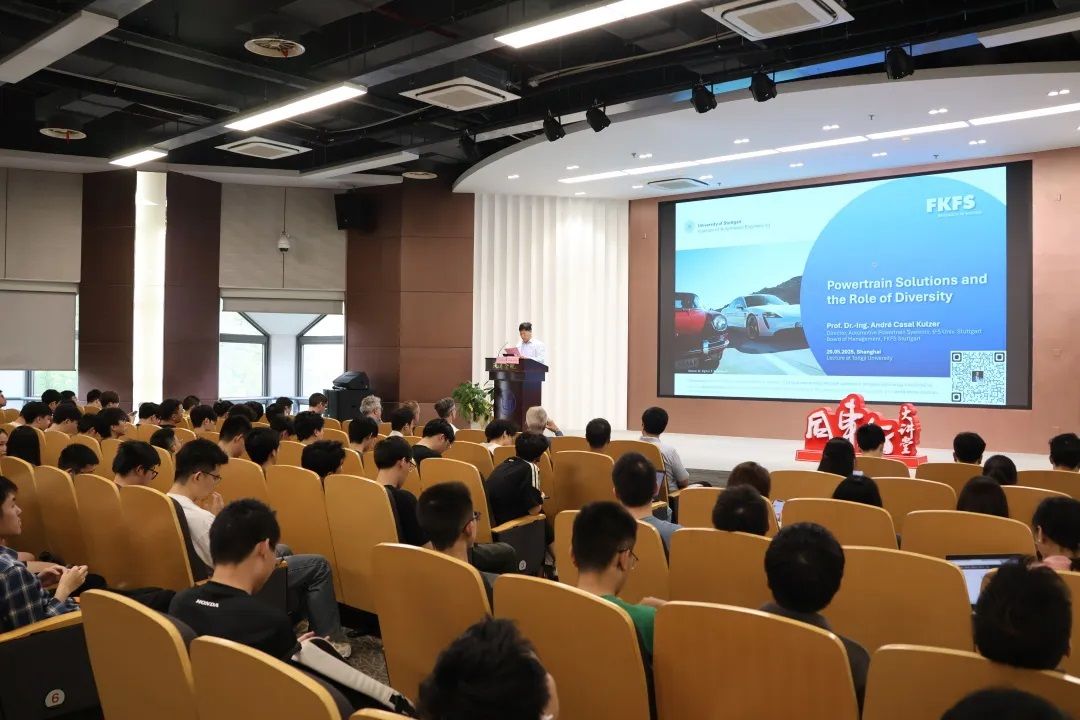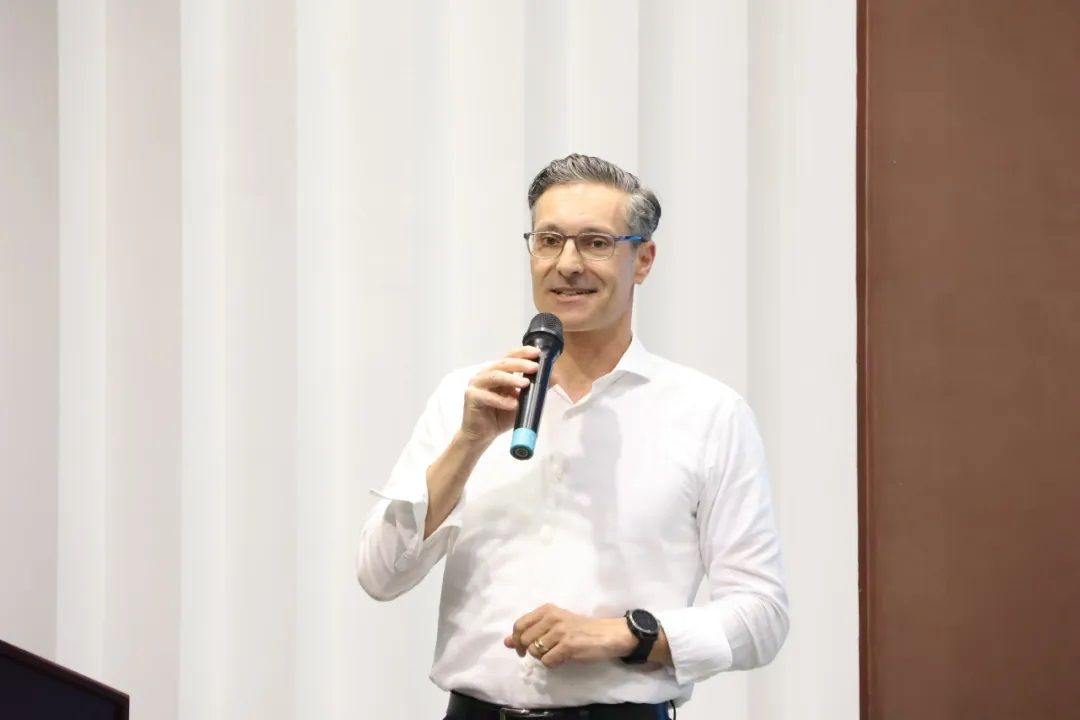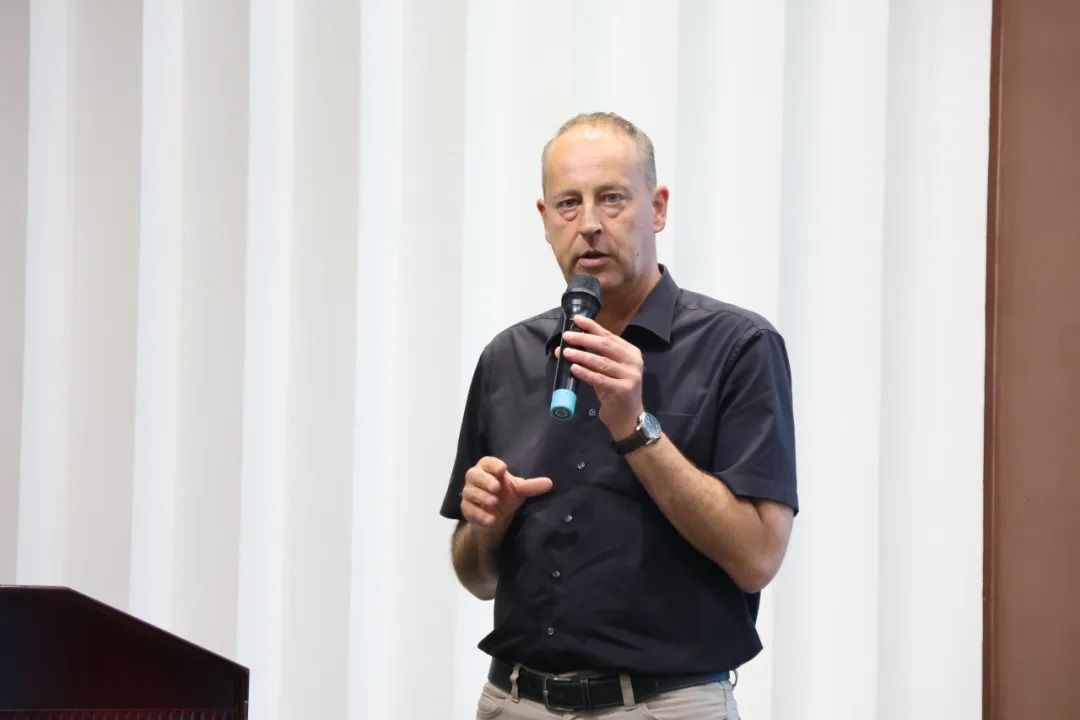On May 20th, the 126th "Tong Che Xing" Grand Lecture was successfully held in the second-floor auditorium of the New Energy Vehicle Engineering Center at Jiading Campus. Prof. André Casal Kulzer, the chair of Automotive Powertrain Systems (Institute for Automotive Engineering and Vehicle Engines IFS) at the University of Stuttgart, and Prof. Andreas Wagner, the Chair of Automotive Engineering at the Institute for Automotive Engineering and Vehicle Engines IFS at the University of Stuttgart, delivered fascinating reports on the topics of "Powertrain Solutions and the Role of Diversity" and "Challenges in Assisted Driving and Some Fields the IFS is Active In," respectively. The lecture was hosted by Prof. ZHANG Lijun, the Party Secretary of the School of Automotive Studies.

Prof. André Casal Kulzer systematically elaborated on the pivotal role of diversified power technologies in achieving the goal of carbon neutrality. He pointed out that the synergistic development of technologies such as pure electric drive, hydrogen fuel, hybrid power, and renewable fuels will be the core direction for the optimization of future automotive power systems. Prof. André Casal Kulzer emphasized that the overall efficiency of power systems needs to address the triple challenges of "efficiency improvement, emission control, and cost balance."

Prof. Andreas Wagner shared the cutting-edge advancements in autonomous driving technology. Drawing on his 16 years of experience in Audi's R&D department, he conducted an in-depth analysis of the current technological bottlenecks faced by Advanced Driver Assistance Systems (ADAS), including insufficient precision in complex environment perception, lack of robustness in multi-sensor fusion algorithms, and difficulties in establishing trust in human-machine interaction. By integrating the latest research findings of the IFS team in the fields of automotive dynamics modeling and thermal management system optimization, he demonstrated how interdisciplinary integration can lead to technological breakthroughs.
